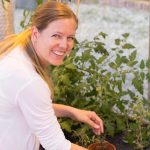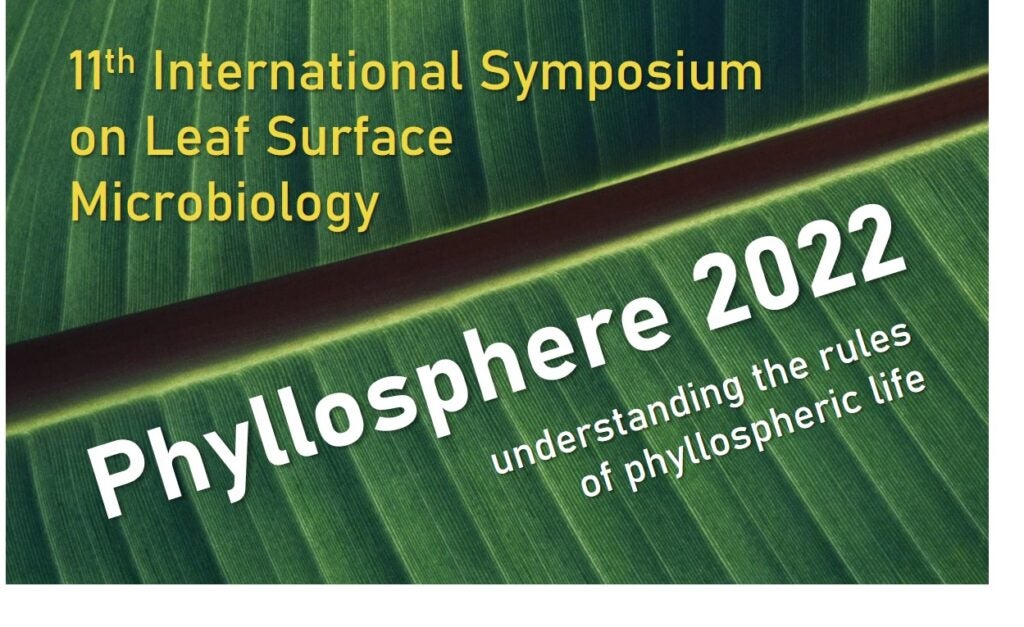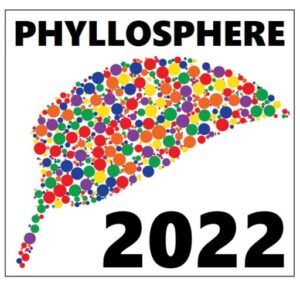
Andrea Ottesen
Food and Drug Administration, College Park MD
https://www.fda.gov/food/whole-genome-sequencing-wgs-program/whole-genome-sequencing-researchers#Andrea_Ottesen
“I am quite sure that the 9th International Symposium of the Microbial Ecology of Aerial Plant Surfaces (2010) was the most magical meeting of my career!
I was a freshly graduated PhD (new post doc) – and this meeting was my first opportunity to meet all the “superstars” who had steered me through my PhD with their elegant phyllosphere literature!
I was like a screaming fan at an Elvis concert (on the inside) – on the outside – I was probably trying to appear very academic and serious! Meeting my rockstars; Drs. Brandl, Lindow, Beattie, Morris, Lambais, Vorholdt, Mahaffee, Suslow, Knief, Leveau… in the Oregon countryside was one of the most momentous and special moments of my academic career.
Thanks Phyllosphere – Phytobiome Superstars! Keep on Keepin on!”

Isabelle Laforest-Lapointe
Université de Sherbrooke, Canada
https://isabellelaforestlapointe.wordpress.com
“I attended my first International Phyllosphere Symposium in 2015 at the half-way mark of my PhD in microbial ecology. It was the most wonderful meeting I ever attended in terms of quality of the presentations, welcoming atmosphere, and scientific interactions with established researchers. It had long-lasting positive consequences on my career. I am delighted to be going back this year in Davis!”

Mitja Remus-Emsermann
University of Canterbury, New Zealand
https://www.remus-emsermann-lab.org
“In 2007, I started my PhD in Phyllosphere microbial ecology. 12 years later I do not regret this decision one bit. Our community is warm, welcoming and supportive and our science is cutting edge. Both Phyllosphere symposia I have attended so far were among the best scientific meetings I have been at. I am looking forward join the symposium in the beautiful and laid-back Davis, California.”

Britt Koskella
University of California, Berkeley
https://naturesmicrocosm.com
“As a relative newcomer into the Phyllosphere field in 2015, I was thrilled to hear about the diverse array of research being done on this important but understudied environment. The community was incredibly welcoming, and the science presented ranged from really exciting fundamental research to novel application within agriculture and beyond. I would highly recommend the meeting to newbies and long-standing phyllosphere researchers alike.”

Nadav Kashtan
The Hebrew University of Jerusalem, Israel
https://www.nadavkashtan.com
“As a newcomer who recently joined the phyllosphere research community – I’m truly excited to participate in this one of a kind meeting! See you there.”








